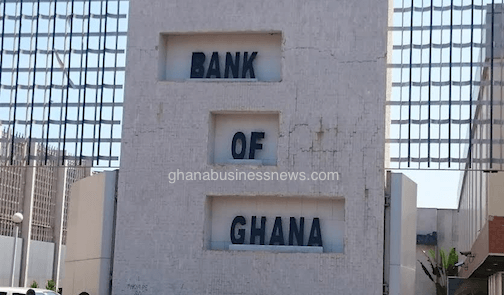Bank of Ghana maintains policy rate at 21% as fiscal consolidation stays on course
 The Bank of Ghana today maintained the policy rate at 21 per cent as the fiscal consolidation process remains broadly on course, the central bank announced this morning at its Monetary Policy Committee press conference in Accra.
The Bank of Ghana today maintained the policy rate at 21 per cent as the fiscal consolidation process remains broadly on course, the central bank announced this morning at its Monetary Policy Committee press conference in Accra.
While acknowledging that expenditures remained within targets, the bank noted that the pace of spending picked up in June and July.
“The continued revenue underperformance could however pose some challenges to the fiscal outlook. Headline and core inflation picked up in August, although inflation expectations declined. The Committee noted that the uptick in core inflation, an indication of emerging pressures, would require further monitoring,” it said.
According to the Bank, since August 2017, there have been upward adjustments in ex-pump petroleum prices which are likely to transmit through prices in the coming months and pose some risks to the inflation outlook, adding that, these notwithstanding, the latest forecast show that medium term inflation target is achievable in 2018.
“This forecast is contingent on continued fiscal consolidation and exchange rate stability. The monetary policy stance has eased in line with declining inflation and underlying inflation pressures since the beginning of the year. At this MPC round however, the Committee decided it was time to pause the easing cycle in view of emerging risks to the inflation outlook, while remaining vigilant and committed to respond and take the necessary policy actions should these initial signs of underlying pressures persist. Consequently, the Committee decided to maintain the monetary policy rate at 21 per cent,” the Governor, Dr. Ernest Addison told journalists.
The Bank stated that the prices of Ghana’s key export commodities have recovered somewhat driven by market dynamics, policy uncertainties and rising global trade.
The Governor noted that crude oil prices have picked up reflecting adverse effects of the recent hurricanes in the Americas, reinforcing production cuts by OPEC.
“However, crude oil prices are expected to remain far below their 2013 peaks. The price of gold has picked up on the back of a weak US dollar. Cocoa prices have, however, remained depressed from excess supply due to favourable weather patterns across the West African sub-region, even as demand continues to remain weak. The combined effect of these global developments is likely to impact the Ghanaian economy,” he said.
By Emmanuel K. Dogbevi
